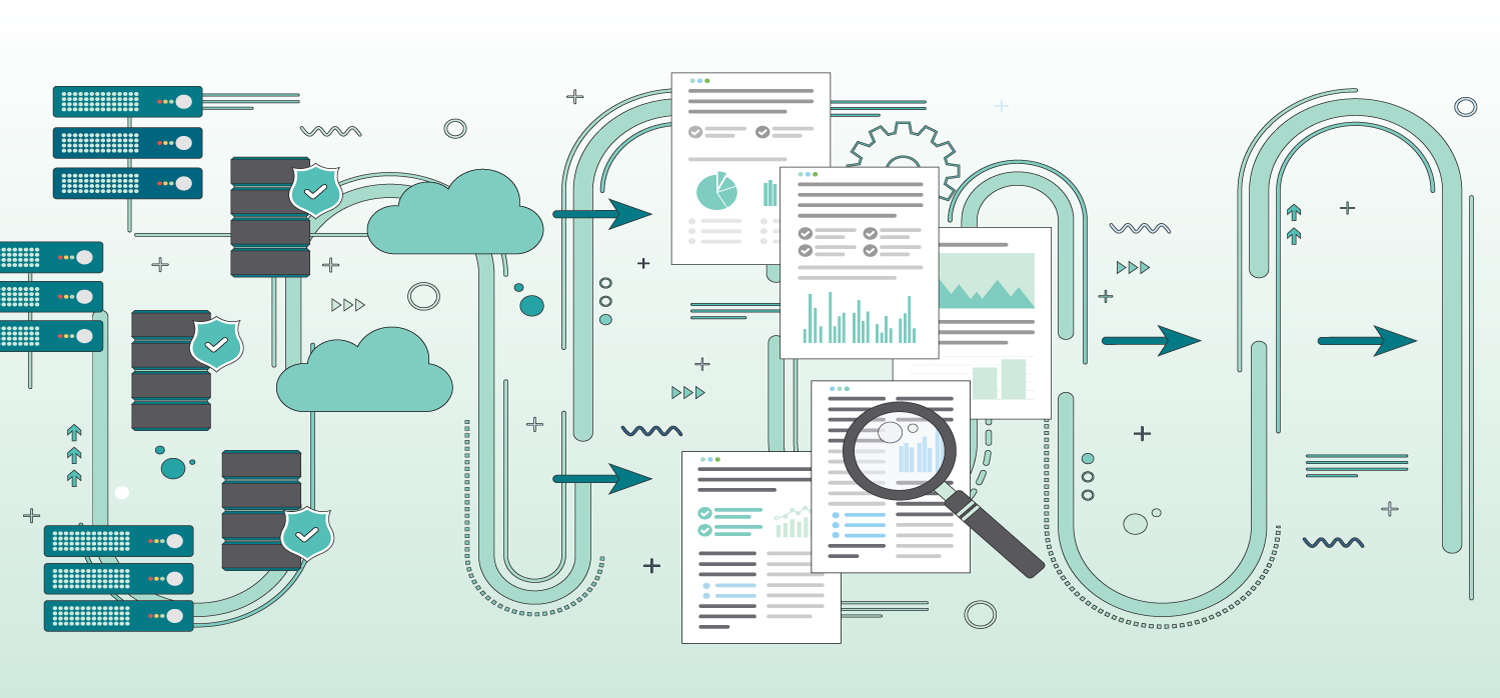Information Overload in 2023
How information overload impacts us and what we can do to combat it

By now you've probably heard the term "information overload", also referred to as "infobesity", "intoxication", "information anxiety", or "information explosion". No matter what you call it, we can all recognize its detriments to knowledge workers. In this blog, we'll explore what it means in 2023 and how you can combat it to work more efficiently.
What is information overload?
Information overload occurs when the amount of input to a system exceeds its processing capacity. Consequently, when information overload occurs, it is likely that a reduction in decision quality also occurs.
When faced with long to-do lists and large amounts of information to search in order to find relevant info, people rely on multi-tasking to get everything done on time. However, effective multitasking is impossible for most individuals and according to the Cleveland Clinic, attempting to multi-task hinders your performance and makes you less efficient. The more you multi-task, the less you actually accomplish.
In today's world, people are getting less done and are overwhelmed with information. The Harvard Business Review defines information burden as being:
-
Duplicative: 57% of employees and managers say they often receive multiple communications about the same topics at the same time
-
Irrelevant: 47% say that the company communications they receive are not relevant to their day-to-day responsibilities
-
Effort Intensive: 38% say they do extra work to keep up with the amount of information they receive at their organization
-
Inconsistent: 33% say that the company communications they receive are often inconsistent or internally conflicting
Information Overload is a Growing, Not Decreasing, Problem
Last year, we gathered data related to information overload. Here are some highlights:
- The data the world will create in the next three years will exceed all data generated over the past 30 years.
- Of all the data created, only about 0.5 percent is analyzed.
- It’s estimated that the collective losses that are a direct and indirect result of information overload will be around $650 billion.
- A study found that the IQ of employees dropped by around ten points due to distractions from phone calls and emails.
- Employees treat a third of all emails they receive as unnecessary.
- In a company with 1000 employees, it’s estimated that all workers collectively will waste around 655,000 hours every year searching for information to do their jobs.
- 65.2% of UK employees said their work is negatively impacted by the high amount of data they have to process at work.
- 36% of managers say they're suffering from poor health due to the excessive amount of information they have to process at work.
- Gallup did a study of 7,500 full-time employees and found that 44% of them reported feeling burned out.
What Causes Information Overload?
The large amount of data employees need to process in order to perform well at their jobs is a driving factor in understanding information overload. McKinsey found that knowledge workers spend 19% of their time searching for and gathering information, while an IDC study found that data professionals are losing 50% of their time every week, 30% searching for, governing, and preparing data plus 20% duplicating work.
The amount of information we have to decode, analyze, and surface in order to find what we need is increasing every day. Oftentimes, workers are siloed and spend their precious time duplicating other team members' efforts. Collaboration is lacking, and information is not easily found with the wealth of information and siloed data sources.
How information overload affects employees
A survey found that 18 percent of workers suffer from information overload, with eight percent feeling overwhelmed. They can’t stop the information intake because they fear they might miss out on data needed for their work. Peer pressure also plays a crucial part as employees don’t want to seem less interested in research or the latest information relevant to their tasks. Nearly half of all employees feel less confident and engaged in their work.
Constantly having to shuffle between different sources of information takes its toll. Interruptions add up to 28 percent of a typical workday for employees. As a result, employees are more likely to feel burned out and become less efficient workers.
How ModuleQ can help you
Thankfully, there's a solution to lessen the effects of information overload, and it involves another trending topic, artificial intelligence (AI). While the rise of AI may bring some feelings of anxiety or uncertainty, others are seeing its potential to relieve them from information overload. How? AI solutions can do most of the searching and information gathering for you, although many AI solutions, such as GPT, lack context. ModuleQ, a People-Facing AI solution, brings context to information and insight delivery.
ModuleQ uses People-Facing AI to deliver relevant and insightful information that helps organizations focus on their core competencies. ModuleQ delivers news curated in the form of content cards that are relevant for individuals and teams. This helps employees and teams gain real-time insights on topics that matter to them.
The benefits of ModuleQ to combat information overload don't stop there. ModuleQ also surfaces information directly from your CRM system to provide you with research briefs, deals data, and more. Integrated directly into the Microsoft Teams app, ModuleQ delivers timely, relevant, and highly personalized insights that are shareable across teams. No more duplicating effort or spending hours searching for information. ModuleQ's patented AI solution is key for knowledge workers, including investment bankers, lawyers, and consultants.
Information overload isn’t going to disappear. It’s only going to get worse. What you need is a system that will absorb it and deliver only what’s needed for you and your team. Schedule a demo today to learn how to harness the power of AI through ModuleQ's innovative solution.